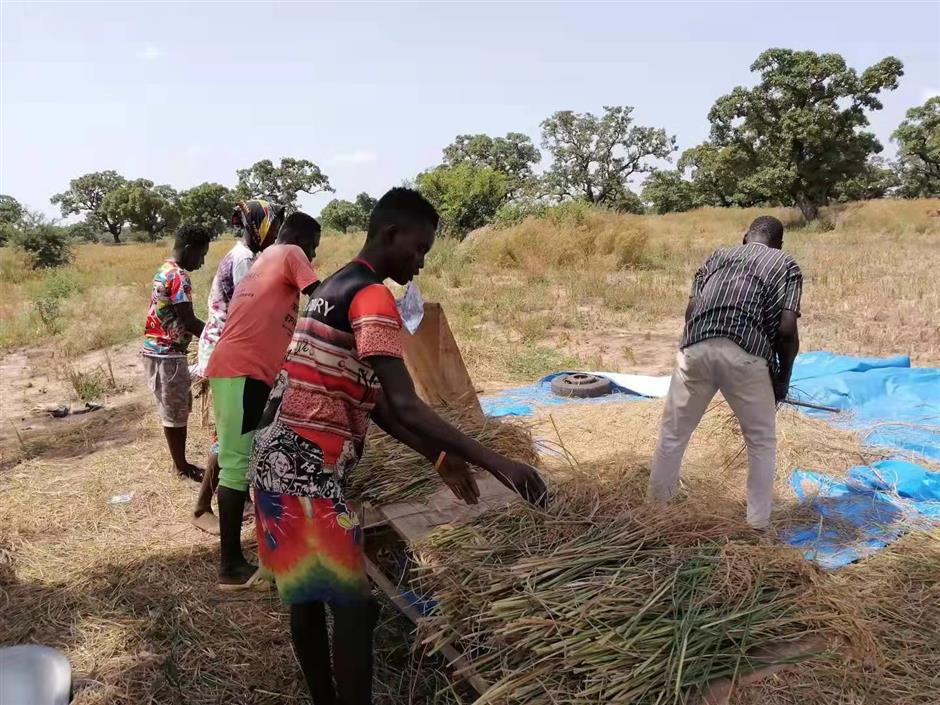Shanghai scientists excel at national scientific award ceremony

Professor Zhao Dongyuan's team wins a first prize in natural sciences award category with their research on polymer and carbon materials.
Shanghai picked up nearly 18 percent of the country's top science and technology awards handed out in Beijing on Wednesday.
The 2020 State Science and Technology Awards honored 275 distinguished scientists and research achievements, with the highest honor being presented to aircraft designer Gu Songfen and nuclear expert Wang Dazhong.
Shanghai got 48 awards, 17.45 percent of the total number, compared with 16.88 percent a year ago. Of the winning projects, more than half were initiated and led by Shanghai.
The city has been a big winner at the awards ceremony for the past 19 years, according to the Shanghai Science and Technology Commission.
This year is the fifth consecutive year that more than 15 percent of the awards went to Shanghai, the commission said, calling it a vivid manifestation of the city's strong innovation capability and great innovation ecosystem.
Specifically, Shanghai received nine awards in natural sciences, nine for technical inventions, and 30 in science and technological progress, which honor groundbreaking basic research, new technical achievements, and technological advancements with considerable economic benefits, respectively.
Notably, the proportion of natural sciences awards granted to Shanghai reached 19.57 percent, a record-high percentage of the national total since 2014.
What's more, Fudan University took one of the two first prizes in the natural sciences award category in recognition of professor Zhao Dongyuan's research on polymer and carbon materials. It was also the first time for Shanghai to win first prize in the natural sciences awards over the past 18 years.

Prof. Luo Lijun from the Shanghai Agrobiological Gene Center has led his team in cultivating 29 water-saving and drought-resistant rice varieties.
Over the years, Shanghai has substantially intensified support for basic research.
Looking at funding increases as an example, from 2018 to 2020, the city's spending on basic research climbed from 7.8 percent to 10 percent of its total R&D expenditure. This proportion is expected to reach 12 percent by 2025, according to a newly-released plan.
Basic research breeds core technological breakthroughs. A solid basic research system is taking shape in Shanghai to strengthen the city's role as an innovation engine, according to the commission.
Technical invention awards were mainly presented for achievements in electronic information and engineering construction. In terms of technological progress awards, the pan-healthcare sector was the biggest winner, and doctors' involvement was particularly prominent.
Huang Hefeng, a professor at Shanghai Jiao Tong University, led her team in creating a full-life-cycle system to prevent and treat genetically inherited diseases. It has benefited over 60,000 families.
Doctor Zhou Jian's team from the Zhongshan Hospital developed an integrated diagnosis and treatment system for liver cancer. Detection devices and personalized treatment solutions have been used at 45 hospitals and four companies across the country in over 30,000 cases, greatly improving survival rates.
Additionally, researcher Luo Lijun from the Shanghai Agrobiological Gene Center has led his team in cultivating 29 water-saving and drought-resistant rice varieties that can save 53.3 percent of water used during irrigation and 47.7 percent of fertilizer, as well as reduce methane emissions by over 80 percent. These rice varieties have also been promoted to "Belt and Road" countries.

Water-conserving and drought-resistant rice is planted in Africa.















